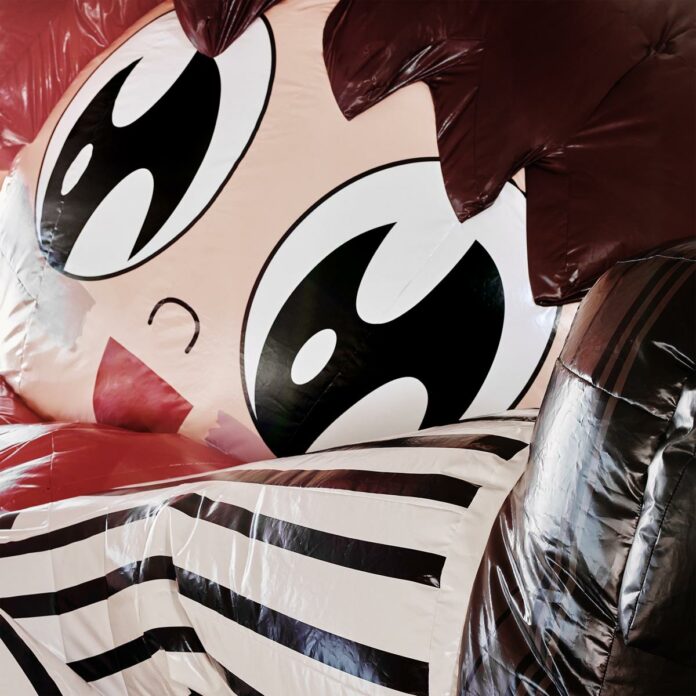About halfway through Porter Robinson’s new album, Lil Wayne’s voice pops up. Like his revelatory 2021 album Nurture, SMILE! 😀 has just one featured guest – this time, it’s the hyperpop sibling duo Frost Children – a marked shift from his guest-heavy debut Worlds, which came out a decade ago. Wayne isn’t here to rap a verse or anything – that would make the track, titled ‘Year of the Cup’, even more confounding. Instead, the electronic artist samples an interview in which Wayne draws a weird line between his substance use and the secret sauce to success; the conversation becomes a reference point for Robinson’s own relationship to his fanbase, fame, and creativity. It’s a lot to take in and tricky to process. Yet it also does a lot to convey the conflict and complexity at the heart of SMILE! 😀, a decidedly gratifying album that chooses the sweet over the bitter even when the recipe seems to show a 1:1 ratio.
To get to the heart, of course, you have to reach through the surface. What you’re immediately greeted with on SMILE! 😀 are maximalist synths, playful lyrics, and giddy melodies. “I’d become so focused on writing music that felt so heartfelt and serious that I’d started denying the parts of me that were about wanting to have a good time,” Robinson said in recent interview. “I wanted to bring that back.” There’s an implicit distinction here between the euphoric optimism that made Nurture soar and the pure fun that runs through SMILE! 😀; the catharsis afforded to him by the former, which delved into his struggles with depression and writer’s block, allowed him to embrace a more lighthearted approach on the new album. He also worked more swiftly, making the album in the same amount of time – 20 months – that it took him to make 2017’s Virtual-Self EP. But the thing about catharsis is that it’s never permanent, so even as SMILE! 😀 feels less heavy-handed, Robinson still has to find new ways to grapple with the heaviness. “NO sincerity, ALL fun” was the record Robinson originally tried to make, but it’s no surprise he ended up striking a more delicate balance.
In that interview, Wayne mentions picking up a guitar, which happens to be what inspired Robinson – who called it “greatest songwriting tool ever discovered” – to write a lot of this album. SMILE! 😀 may kick off with three peppy, synth-powered singles – ‘Knock Yourself Out XD’, ‘Cheerleader’, and ‘Russian Roulette’ – but its most tenderly sincere moments, including ‘Year of the Cup’, are backed by the guitar, for which he always finds the right tone. “I wanna try to change one more time,” he sings over crunchy electric chords on ‘Russian Roulette’, pointing to an ever-present theme in his work. “I wanna live/ I don’t wanna die.” Tapping into his pitch-shifted Nurture voice, ‘Easier to Love You’ is a totally heartfelt guitar ballad that finds Robinson in conversation with his younger self. “I always feel like I just found the thing that’s haunting me,” he sings on ‘Kitsune Maison Freestyle’, a line about his self-image that obviously extends to his musical trajectory. There’s always something else, something new or older still.
Even at its most pop-forward, SMILE! 😀 offers an irresistible glimpse into a world that’s all-consuming yet life-affirming enough for an artist like Robinson to keep taking the gamble. Both its silliness and vulnerability come as a result of Robinson’s unguarded approach. It allows him to blurt out a line as shameless and divisive as “Bitch, I’m Taylor Swift,” which works a lot better when you hear the set-up to the punchline: “Don’t know my schedule on the fifth.” Like with the Lil Wayne sample, Robinson is clearly intent on contextualizing his own experience of fame – how it messes with his head and relationships, how fans perceive him, how he’s expected to move forward and, yes, smile. But while he’s being cheeky about it, he’s not shy about the part of himself that really does crave the attention, nor the ways in which it burdens him.
And then he reminds us why he still has faith: in his fans, himself, the pop formula. He believes in the power of a basic chord progression, even as he ends ‘Russian Roulette’ with an artificial voice pointing out the song’s adherence to genre clichés. He follows the Taylor Swift joke with a bridge strong enough to justify the reference. “If irony is a virtue, maybe I should be king,” Robinson finally declares on ‘Everything to Me’; the irony is that he’s ending an album in part about the toxicity of fandom with an earnestly wholesome love song the crowd will sing back to him at every show. The irony is that he tells us exactly what the drug is and who he needs it from. And the beautiful thing, the most ironic thing, is that it’s no excuse for nihilism. It means something, after all.

